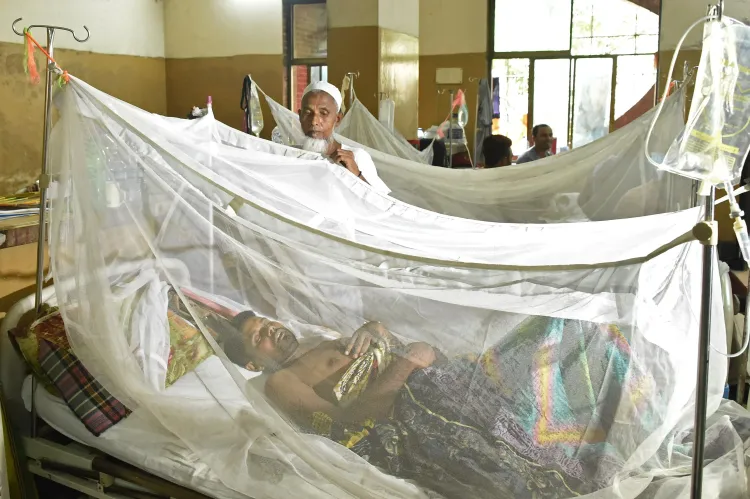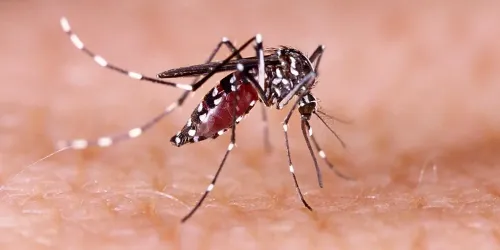What is the Current Dengue Fatality Rate in Bangladesh for 2025?

Synopsis
Key Takeaways
- One more death due to dengue reported in Bangladesh.
- Total fatalities from dengue in 2025 have risen to 245.
- Current hospitalizations include 977 patients in Dhaka.
- Early diagnosis is crucial for effective treatment.
- Preventive measures are essential to control dengue outbreaks.
Dhaka, Oct 19 (NationPress) A tragic incident has occurred as one individual has succumbed to dengue in Bangladesh within the last 24 hours, bringing the total fatalities from this mosquito-borne illness in 2025 to 245, as reported by local media on Sunday.
The most recent death was noted in the Barishal Division, according to the Directorate General of Health Services (DGHS), as per the United News of Bangladesh. During this timeframe, 950 additional patients were hospitalized due to viral fever, which has escalated the total number of cases in 2025 to 59,849.
Currently, 977 patients are receiving treatment in Dhaka, while 2,793 individuals are being treated in various hospitals across Bangladesh. The report indicates that 61.3 percent of the newly reported cases are men, while 38.7 percent are women.
In 2024, 575 fatalities were recorded due to dengue in Bangladesh. The DGHS documented 101,214 dengue cases and 100,040 recoveries during that same year.
On October 9, Director General Abu Jafor highlighted that the number of dengue cases in 2025 has surpassed that of the previous year; however, the mortality rate is lower.
During a press briefing regarding the ‘Typhoid Vaccination Campaign-2025’ held at the Health Ministry, Abu Jafor emphasized, “This year, the number of dengue infections is higher than last year, but the death rate in proportion to infections is lower,” as reported by the United News of Bangladesh.
He stressed the importance of preventing dengue through mosquito breeding control and larval destruction. “Individuals must utilize mosquito nets and adopt protective measures, as these are primarily individual responsibilities. Neglecting these practices will hinder our efforts to eliminate dengue,” he stated.
“Our data reveals that over 50 percent of dengue-related deaths in hospitals occur on the very first day of admission, indicating that patients are not seeking care promptly. We are committed to providing optimal management in hospitals,” he added.
Abu Jafor underscored the significance of early diagnosis, stating that if detected early, dengue can be managed at home with appropriate medical attention. He pointed out that a lack of awareness, negligence, and delayed medical care are the primary contributors to the rising dengue death rate.
Dengue is a viral infection caused by the dengue virus (DENV), transmitted to humans through bites from infected mosquitoes. The World Health Organisation (WHO) notes that dengue is prevalent in tropical and sub-tropical regions worldwide, mainly in urban and semi-urban locales. Preventative measures and control of dengue hinge on vector management. Although there is no specific treatment for dengue, early detection and timely medical care can significantly reduce the fatality rates associated with severe cases.









